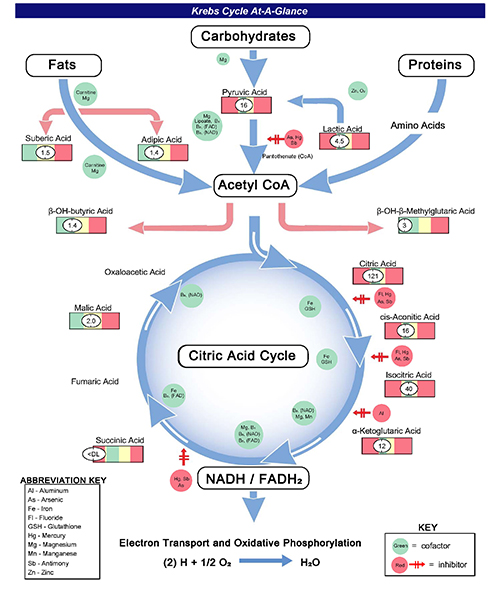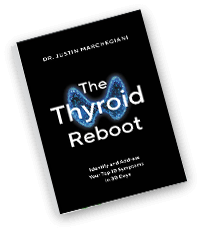Description
Genova NutrEval® FMV – Comprehensive Functional Nutrition & Metabolic Profile
SPECIMEN TYPE: URINE / BLOOD / BUCCAL SWAB
When should testing for NutrEval FMV be considered?
According to the World Health Organization, every country in the world is affected by one or more forms of malnutrition. The term malnutrition addresses 3 broad groups of conditions:1
- Undernutrition (wasting, stunting, underweight)
- Micronutrient-related malnutrition from inadequate or excess vitamins or minerals
- Overweight, obesity, and diet-related noncommunicable diseases (such as heart disease, stroke, diabetes and some cancers)
Proper nutrition is key to preventing a number of diseases. Nutrients are necessary to feed every cell and ensure all body systems are functioning properly. Testing can help clinicians and patients gain an understanding of how nutritional imbalances may be impacting their health. Certain conditions or dietary, genetic, and lifestyle factors may predispose a person to having nutrient imbalances.
Symptoms and conditions associated with nutrient imbalances
- Mood disorders
- Cardiovascular disease
- Obesity/ Insulin resistance/ Type 2 Diabetes
- Autism
- Fatigue
- Weight Issues/ Malnutrition/ Dietary Guidance
- Maldigestion/Malabsorption
- Increased nutrient demand in physical trauma/healing
The NutrEval FMV Biomarkers
The biomarkers on the NutrEval are arranged as follows:
-
- Metabolic Analysis Markers (urine organic acids)
- Malabsorption and Bacterial/ Yeast Dysbiosis Markers are metabolites produced by the gastrointestinal microbiome
- Metabolic Analysis Markers (urine organic acids)

-
- Cellular Energy & Mitochondrial Metabolites are biomarkers of carbohydrate and fatty acid metabolism, and the citric acid (Kreb's) cycle
- Neurotransmitter Metabolites are downstream byproducts of epinephrine, norepinephrine, serotonin and dopamine
- Vitamin Marker are specific analytes used to assess functional levels of vitamin cofactors
- Toxin & Detoxification Markers relate to certain toxic metabolites and the body's detoxification capacity
-
- Amino Acids (urine)
- Essential Amino Acids must be derived from dietary sources
- Nonessential Amino Acids are synthesized by the body
- Intermediary Metabolites are byproducts of amino acid metabolism
- B Vitamin Markers are involved in biochemical reactions that specifically require B vitamins
- Urea Cycle Markers are byproducts associated with nitrogen detoxification
- Glycine/Serine Metabolites are involved in the choline to acetylcholine (neurotransmitter) pathway and the methylation pathways
- Dietary Peptide Related Markers can indicate incomplete protein breakdown
- Amino Acids (urine)
- Essential and Metabolic Fatty Acids Markers (RBCs)
- Omega 3 Fatty Acids are essential for brain function and cardiovascular health and are anti-inflammatory
- Omega 6 Fatty Acids are involved in the balance of inflammation
- Omega 9 Fatty Acids are important for brain growth, nerve cell myelin, and reducing inflammation
- Saturated Fatty Acids are involved in liproprotein metabolism and adipose tissue inflammation
- Monounsaturated Fats include omega 7 fats and unhealthy trans fats
- Delta-6 Desaturase Activity assesses efficiency of this enzyme to metabolize omega 6's and omega 3's
- Cardiovascular Risk includes specific ratios and the Omega 3 Index
- Oxidative Stress Markers include antioxidants glutathione (whole blood) and Coenzyme Q10 (serum), as well as the oxidative damage markers lipid peroxides and 8-OHdG (urine)
- Vitamin D (serum) measures a total of 25-hydroxyvitamin D3 (cholecalciferol) and 25-hydroxyvitamin D2 (ergocalciferol)
- Elemental Markers
- Nutrient Elements are direct measurements of copper and zinc (plasma), magnesium and potassium (RBC), and manganese and selenium (whole blood)
- Toxic Elements (whole blood) indicate exposure to lead, mercury, arsenic, cadmium or tin within approximately a 90-120 day timeframe
- Add-on SNPs (buccal swab) include MTHFR, COMT, TNF-a, and APOE
What is the difference between plasma and urine amino acids?
Certain amino acids are measurable in blood versus urine and sample type selection depends on the clinical concern. The key differences between plasma and urine amino acids are summarized below.22,23
| Plasma Amino Acids (Fasting) | Urine Amino Acids (First Morning Void) |
| Fasting sample represents “steady state” pool of amino acids; not affected by short-term diet fluctuations | Represents recent dietary intake and metabolism – more variable compared to plasma |
| 36 analytes | 40 analytes |
| Useful for mood disorders, or uncontrolled diets | Useful for controlled diets, to assess protein maldigestion, oxidative stress, vitamin/mineral cofactors affecting amino acid metabolism |
| Amino acid levels influenced by abnormal kidney function; preferred if patient has proteinuria | Amino acid levels influenced by abnormal kidney function; urine testing dependent on healthy kidney function (biomarkers ratioed to urine creatinine) |
| Requires a blood draw | Requires a urine sample |
What advantage does the NutrEval FMV offer compared to other diagnostics?
The NutrEval FMV is one of the most comprehensive nutritional profiles available assessing a broad array of macronutrients and micronutrients, as well as markers that give insight into digestive function, toxic exposure, mitochondrial function, and oxidative stress.
Genova provides a user-friendly report with clinically actionable results including:
- Suggested digestive support and vitamin, mineral, and fatty acid recommendations based on an algorithmic calculation of functional need for cofactors in the body's metabolism
- Suggested amino acid recommendations based on patient's direct amino acid measurements
- Interpretation-At-A-Glance pages provide educational information on nutrient function, causes and complications of deficiencies, and dietary sources
A Functional Nutritional Assessment
There are various methods of assessing nutrient status, including intracellular and extracellular direct measurement, and measuring biochemical pathway markers that require specific nutrient cofactors for proper metabolism. The NutrEval uses a combination of these methods and synthesizes the information via an algorithm that determines personalized nutrient needs. The algorithm is based on functional markers shown in the literature to be associated with a need for a particular nutrient.
Functional evaluation of nutritional status assesses metabolic intermediates produced in enzymatic pathways of cellular energy production, detoxification, neurotransmitter breakdown, and amino acid metabolism. Specific metabolites outside of reference range may signal a metabolic inhibition or block. This abnormality may be due to a nutrient deficiency, an inherited enzyme deficit, toxic build-up, or drug effect. It is possible for an individual to have normal blood levels of a vitamin in order to maintain homeostasis, while exhibiting signs of insufficiency/deficiency for that vitamin. For this reason, direct testing of individual nutrients alone does not provide a complete picture.
Other methods of assessing nutrient status, such as intracellular lymphocyte testing, has limited literature support.
Conventional nutritional panels include tests such as complete blood count, comprehensive metabolic panel, iron, ferritin and other select nutrients. The NutrEval is not meant to be a substitute for this important testing, but rather a complement by providing additional information.
What can clinicians and patients expect from NutrEval FMV testing?
Personalized recommendations for amino acids, fatty acids, vitamins, minerals, digestive support, and other nutrients are provided for each patient. Additionally, exposure to select toxic substances and oxidative stressors may need to be addressed. Comprehensive stool testing or SIBO breath testing may be appropriate to investigate the possible cause for maldigestion/malabsorption and dysbiosis.
Warnings:
-
For professional use only. Not intended for self-diagnosis.
-
Follow specimen collection and shipping instructions exactly.
-
Interpret results within the context of a complete clinical evaluation.
-
Not available in New York State.
-
Only licensed healthcare providers may order this test.
========================
IN CASE YOU MISSED IT:
Understanding Mitochondrial Function and Energy Production: A Comprehensive Guide





Reviews
There are no reviews yet.